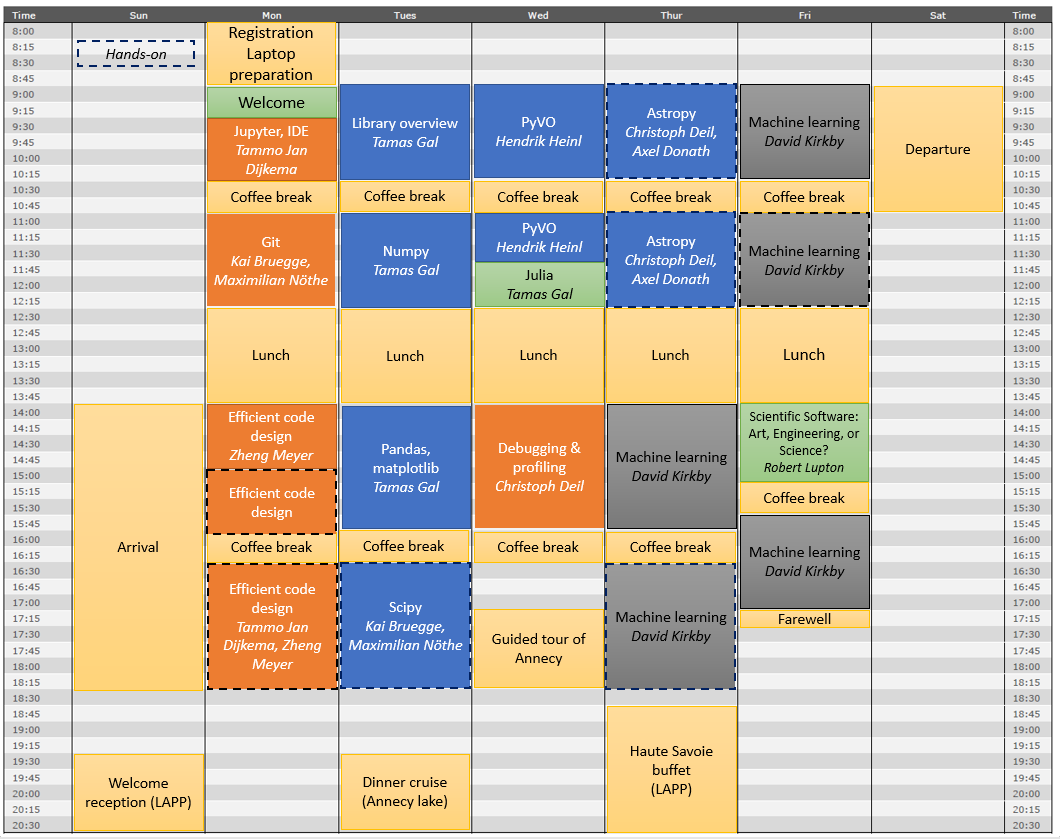The program of the school is devoted to project development for astrophysics & astroparticle. The aim of the school is to provide theoretical and hands-on training on Python development.
Prerequisites: intermediate level (or more) in Python is required. Python will be the language of reference during the school.
The program will be as follow:
Efficient code design:
- Jupyter notebook, Python IDE
- Good code practice
- Python docstring
- Unit, functional, and integration testing
Project management:
- Git
- Continuous integration
- Class, module & package in Python
- Debugging & profiling
Python libraries for science:
- Numpy & Pandas
- SciPy
- Matplotlib
Python library for astrophysics & astroparticle:
- PyVO
- Astropy
Machine learning & statistics: connecting scientific data with probabilistic models
- Probabilistic foundations of machine learning
- Practical introduction to unsupervised and supervised learning
- Use of scikit-learn and tensorflow in scientific applications
On the last day of the school a keynote lecture by Robert Lupton will be presented:
Scientific Software: Art, Engineering, or Science?
Modern astronomy depends critically on software at every stage of the pipeline from the hardware through the analysis to the final interpretation. I will discuss the challenges involved in creating readable, reusable, reliable, efficient code to extract as much information as possible from enormous volumes of raw imaging data and make it available to scientific analyses in a way that doesn't require users to reprocess or even look at the images.

